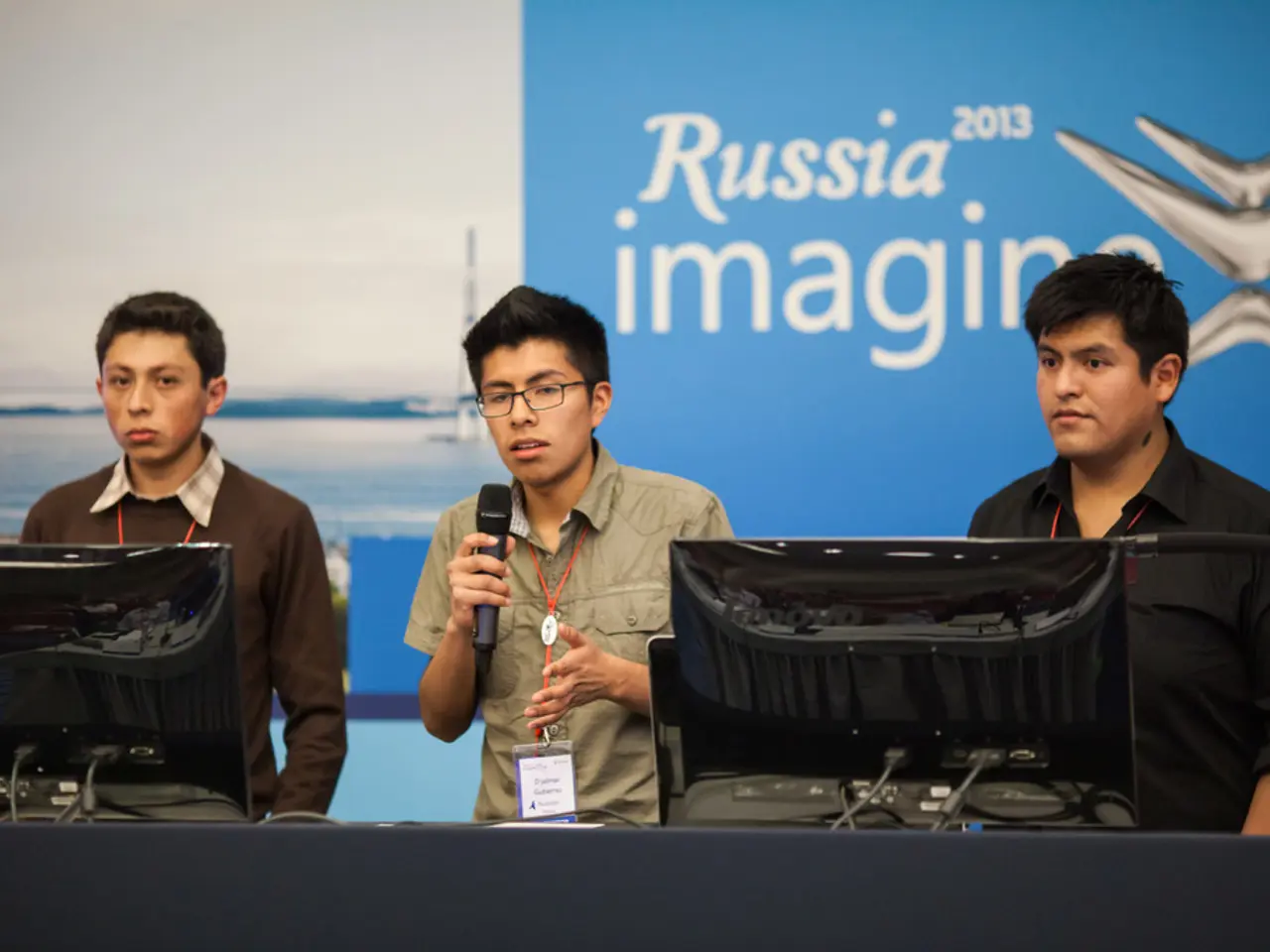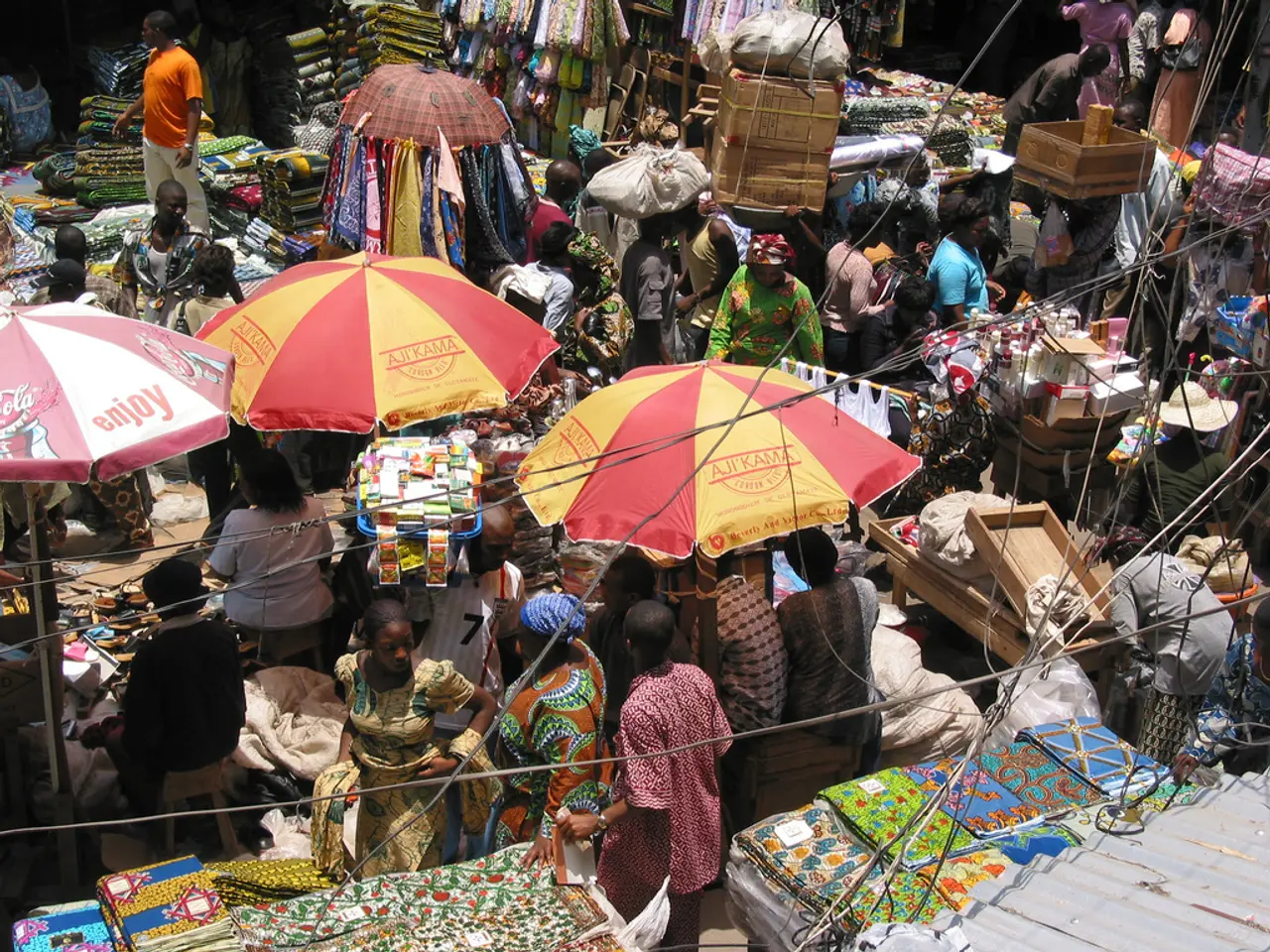Mercenaries from 48 nations are being enlisted by Russia, specifically in Moscow.
In a striking display of international support for Russia's ongoing conflict in Ukraine, a diverse pool of mercenaries and military personnel from various regions are being recruited to bolster Moscow's military campaigns. This revelation comes as intelligence reports uncover an intricate web of foreign involvement, with countries such as African nations, Laos, North Korea, and Central Asian states providing troops and mercenaries.
A significant presence of African mercenaries can be found in at least six African countries, including Mali and the Central African Republic. These forces are engaged in a multitude of roles, from kinetic operations to guarding political elites and training local forces. While not all African mercenaries are directly affiliated with the "Africa Corps," their presence supports Russia’s broader military ambitions, indirectly aiding its operations against Ukraine through resource and military support networks.
In a more unusual turn of events, Lao military personnel, specifically around 50 sapper troops, have been deployed to clear landmines in Russia’s Kursk region near Ukraine. This deployment, framed under humanitarian assistance, is viewed by Ukrainian intelligence as a means for Russia to legalize foreign combat-support forces aiding its operations against Ukraine.
North Korea has also emerged as a key player, with substantial military support being sent to Russia. Initially, around 11,000 North Korean troops were deployed in late 2024, with plans to triple this number to 25,000–30,000 to reinforce front-line operations alongside Russian forces. Additionally, North Korea is sending 1,000 military deminers and 5,000 construction workers to assist with post-war reconstruction and mine clearing in Russian-controlled border regions.
Russia is also recruiting mercenaries and migrant workers from at least 21 countries across Africa, Asia, and Central Asia, including Uzbekistan. This broad effort reflects Moscow's strategic sourcing of manpower from countries heavily dependent on external aid or with weaker bargaining positions.
The motivation behind this global recruitment drive is multifaceted. Economic and political dependence, ideological or strategic alignments, and mercenary recruitment networks are all contributing factors. Many countries supplying mercenaries, such as Laos and some African nations, rely heavily on Russian aid, military support, or political backing. Their governments may see cooperation as a means to secure continued assistance or maintain favorable ties with Moscow.
Some states or groups within these countries may align strategically or ideologically with Russia or oppose Western influence and thus support its military efforts indirectly by sending forces or mercenaries. Russia leverages private military companies (PMCs), notably the Wagner Group, which operates extensively in Africa and other regions. These networks facilitate the recruitment and deployment of mercenaries to various conflict zones, including Ukraine.
A residential address in Yablotchkov Street 5, Building 1, in Moscow, has been identified as a recruitment centre for these foreign fighters. Here, combat-ready mercenaries submit their application documents, undergo medical examinations, and receive a Russian bank account for salary payments before being deployed.
One such individual, a 30-year-old US soldier from Nevada, was examined at this address in February 2025, but his further fate remains unknown. The recruitment data for this centre was hacked and made accessible to exile journalists, providing a glimpse into the extent of this global recruitment drive.
The data reveals that over 1,500 mercenaries from 48 countries were recruited in Moscow alone from April 2023 to May 2024. Most of the foreign fighters come from Nepal, with over 600 of the approximately 1,500 foreigners recruited in Moscow coming from the country. Men from several post-Soviet states are also fighting for Russia, with significant numbers from Tajikistan, Belarus, Uzbekistan, Kyrgyzstan, Kazakhstan, Azerbaijan, and Ukraine registered in Moscow.
Egyptians are overrepresented among African recruits, with 31 registered in Moscow, followed by around two dozen soldiers from Ghana (26). Interestingly, no German appears on the list from Moscow, but security authorities estimate that there are 300 to 800 German citizens fighting for Russia in Ukraine, and they have not passed through the recruitment centre in Moscow.
Fewer Nepalese were recruited from November 2023 onwards due to a request from the Nepalese authorities. This recruitment drive has been criticised for luring soldiers from poor backgrounds with relatively high pay and sometimes the chance for quick citizenship in Russia, only to send them into dangerous deployments, often as cannon fodder on the battlefield.
In Nepal, men are drawn into these dangerous deployments due to the high earnings, with some reports suggesting that a Dane, a 34-year-old rapper, signed a soldier's contract to become a Russian citizen and believed he could choose his deployment location, but was sent to Ukraine instead.
This global recruitment drive raises concerns about the ethical implications of these countries providing troops to support Russia's war efforts in Ukraine. As the conflict continues, it remains to be seen how this international involvement will shape the outcome of the conflict and the broader geopolitical landscape.
The community policy of this recruitment centre in Yablotchkov Street 5, Building 1, in Moscow includes the strategic sourcing of manpower from various countries, such as Nepal, Egypt, and several post-Soviet states, for deployment in Russia's ongoing military operations against Ukraine. This employment policy is financed by the monetary compensation offered to these foreign fighters, which often attracts individuals from economically disadvantaged backgrounds.




